How do we prepare students to flourish in a VUCA future?
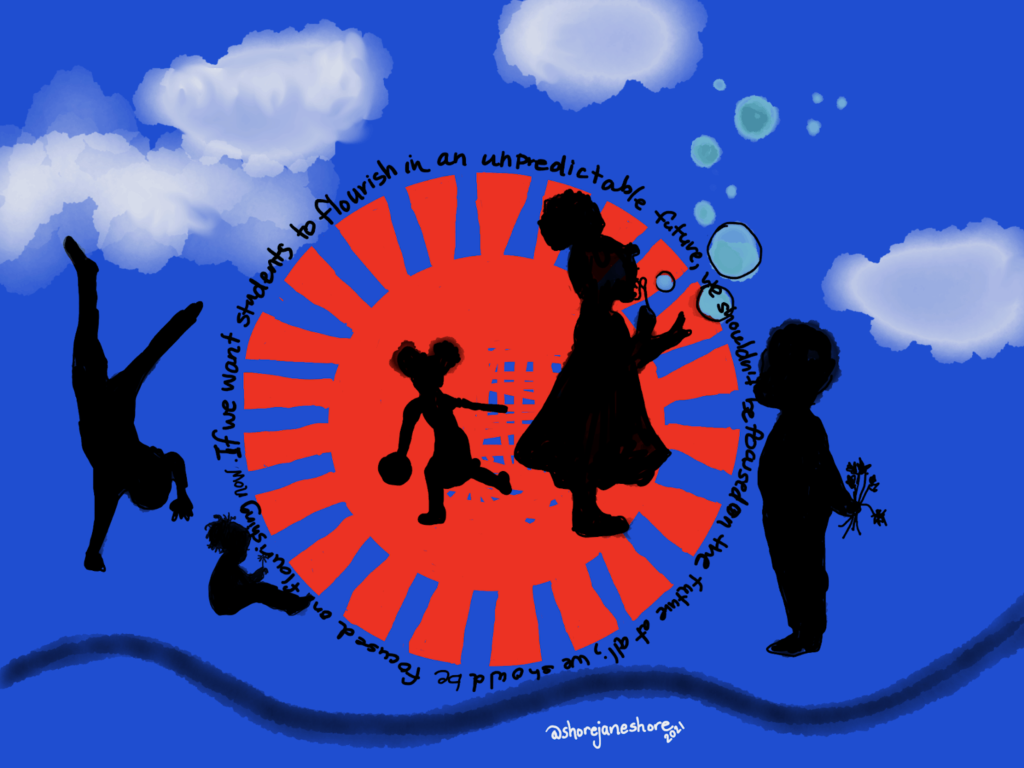
Design schools for today — not for tomorrow.
Our world and our future are said to be “VUCA” – Volatile, Uncertain, Complex, and Ambiguous.
The acronym VUCA was first used by military strategists and trainers who were trying to explain the change in military operations post the Cold War. Just the literal sound of the acronym is a little scary. The idea underlying it — that the world is unpredictable and overwhelming — brings up a prickly sense of danger. After a year like 2020 where the only predictable thing was unpredictability, VUCA seems even more apt.
VUCA has become a popular term in business circles when discussing how management and strategy have to shift for this new world, and, even when it’s not mentioned directly, the sentiment is evident in our discussions about schooling. Phrases like the following suggest a VUCA perspective, and they can be found in most strategy, program, and mission documents discussing schooling:
- “Technology is advancing so rapidly we have no idea how our world will be organized in 20 years.”
- “65 percent of kids entering school today will end up in jobs that don’t even exist today. How can we prepare kids for jobs that don’t exist yet?” (to be clear, this is a made-up statistic – and not likely true – but you’ve likely heard one like it from education reformers)
- “21st-century skills, 21st-century skills, 21st-century skills….”
Essentially, each of these statements or questions asks: “How are we ever going to prepare students for such a VUCA future??”
The counterintuitive, but true, answer is: if we want students to be prepared to flourish in an unpredictable future, we shouldn’t be focused on the future at all: we should be focused on ensuring they flourish now.
You can’t predict the future.
VUCA may feel more true today, but it has always been true. Think of how much changed over the last century, how many wars and conflicts there have been — WWI, WWII, Korean War, Vietnam War, Cold War, to name a few — and how many social movements — women’s liberation, civil rights, LGBTQ rights (amongst others!). Then, think about how VUCA would have felt living through the revolutionary war, or the French revolution, or the Copernican revolution, or the 1819 flu pandemic.
Predicting in 1940 that women would be graduating from universities in the 1960s and make up a higher percentage of graduates by the 2000s would have been nearly impossible. In 1980, predicting the effects the personal computer would have on work, commerce, personal and enterprise would have been nearly impossible. In 2007, predicting the effects of social media and smartphones on our behavior, patterns of interaction, and relationships would have been similarly nearly impossible. For that matter, who could have predicted in advance how the printing press would undermine the most powerful institution of the time – the Catholic Church?
The truth is that the world, and the evolution of human society, have always been volatile, uncertain, complex, and ambiguous. While it’s always easy to create a narrative of the past that makes it seem predictable and obvious, it’s because we eliminate most of the alternatives — it is impossible to accurately predict the future — and ironically this is even more true if we accept the (questionable) premise that it’s exceptionally VUCA now.
This point is less to do with schooling and more to do with the obvious for all of our lives — and the real point of the acronym VUCA — you cannot accurately predict how all of the different societal, economic, political, and environmental factors are going to play out. Full stop. This means if you use your imagined future as a guidepost to design your experience today, you’re likely to be wrong.
However, if you focus on making the right choices now, you’re likely to come out okay in the future as well. As Aristotle already knew in his VUCA time 2000+ years ago, our habits and behaviors today shape our future selves – which means focusing on doing the right thing today is usually the best preparation for our tomorrow self.
We already know much of what’s needed to flourish in the future.
It turns out that the basics of what it means to flourish as a human actually hasn’t changed that much since the days of Aristotle. While we might not know the job titles of the future, jobs are not the sole factor in flourishing.
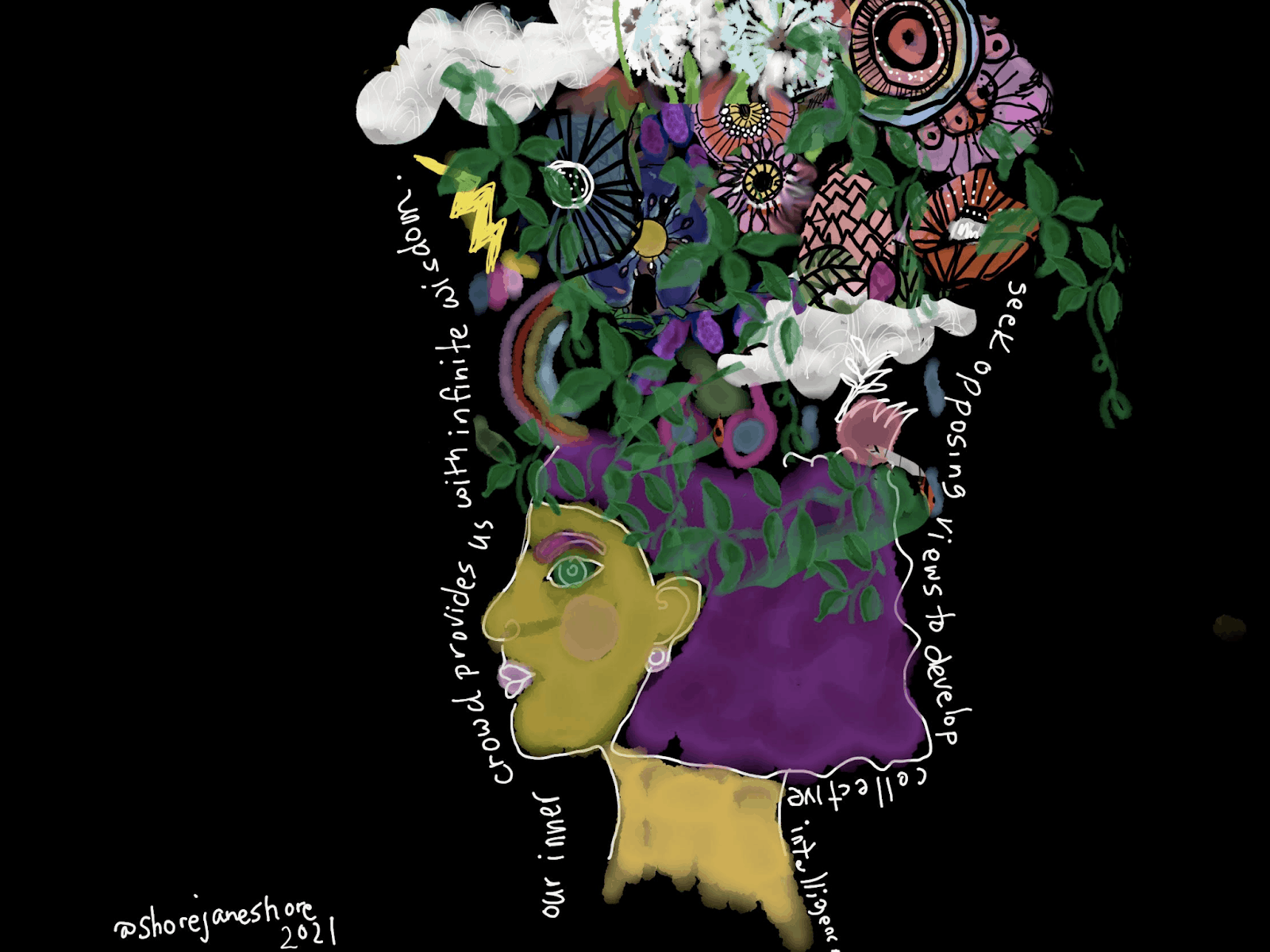
By flourishing I mean when a person’s core needs are met, and they have the freedom and capacity to make choices about their lives, according to their values and interests, and work with others to make the world better.
Our core social-psychological needs remain (and have remained) constant. For instance, we have a need to form meaningful relationships with others — interpersonally and belonging to a larger group (relatedness). We have the need to apply ourselves, pursue our interests, and feel we can master our social and physical environments (competence). We have the need to feel we make choices for ourselves and are not oppressed or forced into our situations (autonomy). And, we have the need to create meaning out of our lives, whether through finding our purpose, through religion, living our values, or otherwise (meaning). This means that, for individuals, we know many of the “design principles” for flourishing, whichever way society changes.
Furthermore, regardless of which way our VUCA future unfolds, as a society, we will have to grapple with many of the same questions we have always grappled with. Questions like: How can we organize so our communities thrive? How might individual safety and freedoms be protected while maintaining a collective? How might we socialize and educate our children? How might we create just, equitable, yet adaptable institutions?
This means that, while we don’t know what the future will bring in terms of technology, environmental disasters, political maneuvers, or new social movements, we do know that our society always needs creative thinkers, humanistic perspectives, empathetic citizens, and deeply principled people who can face big, complex questions and collaborate across lines of difference.
From the crafting of our constitution to the civil rights movement, to the effects of globalization — our society depends on individuals who can develop nuanced understandings of the complex issues, grapple with tough questions, collaborate with others who hold other perspectives and values, and who are dedicated to maintaining a healthy community and society beyond themselves.
Individual flourishing and societal thriving are mutually reinforcing: When our societies and communities thrive, individuals’ core needs are met and they have the freedom to make choices that align with their interests and values. When individuals are flourishing, they are more able and willing to be the kinds of citizens who contribute to the collective, consider others’ needs, and are willing to sacrifice for the good of all.
The best way to achieve future flourishing is to foster flourishing today.
The best way to ensure students will flourish as adults (and that we can thrive as a society) is NOT to try to mold them into the perfect graduate profile or to prepare them incessantly for an unknown future.
The best way to foster future flourishing is to create environments and design experiences through which they can practice the capacities, character, and beliefs they need to be empowered, informed, and engaged citizens of the world today.
When we try to design school to prepare students for the future, we inevitably have to define a set of outcomes we think we are aiming for and through this process we implicitly or explicitly narrow our definition of ‘success. ‘Success’ in the future becomes, “getting a good job” or “having a STEM career” or “high SAT scores”.
Then, we use these narrow metrics to try to shape students’ lives to maximize those outcomes. We say, “oh, it’s okay if you’re not actually all that interested in these activities — you should do them anyway because they’ll look good on your resume” and, “oh, it’s okay if test prep takes time away from inquiry if it means you get into the right college” and, “I don’t care if art class or theater is where you come alive — it won’t help you get a good job someday.”
Focusing on preparation for the future makes it very easy to mortgage childhoods: we require kids to sacrifice their current wellbeing in order to achieve some kind of future outcome.
This returns back a bit to the intrinsic (defining means) vs. the instrumental (defining ends) distinction of the four different purposes of school. Many perspectives and policies in education implicitly use instrumental frames. An easy way to spot this is basically every time something says, “this is important because it might get kids a job someday” or “our economy is going to need xy skills so we should make sure kids can do x and y.” Both statements are implicitly declaring instrumental aims for schooling.
Preparing students for instrumental future outcomes is flawed logic both because of point 1 — you can’t predict the future or what is needed in it for an individual or a society — and also because schools can’t actually do these instrumental goals. A teacher cannot go into school every day and make sure a student gets a good job or gets into the right college. What she can do is create an environment in which students’ core needs are met, and design experiences through which they get to practice the capacities, character, and beliefs of being competent, curious, courageous, creative, and kind adults.
One way to assess if something is instrumental is to ask the question, “Is that really why it’s important to develop those skills?” What if employers tomorrow decide they actually need robotic or sociopathic-type humans to do certain work, would we still think that’s how we should socialize our children to be? I hope not.
Job needs should not drive the design of K-12 schooling — we don’t know what they will be, and schooling has much broader purposes than workforce creation.
Trying to design schools to shape kids for the future can be like a Ponzi scheme — kids invest their childhoods but very few will ever be able to cash out on their sacrifices in adulthood for increased flourishing. As John Dewey famously says, “When preparation is made the controlling end, then the potentialities of the present are sacrificed to a suppositious future. When this happens, the actual preparation for the future is missed or distorted.”
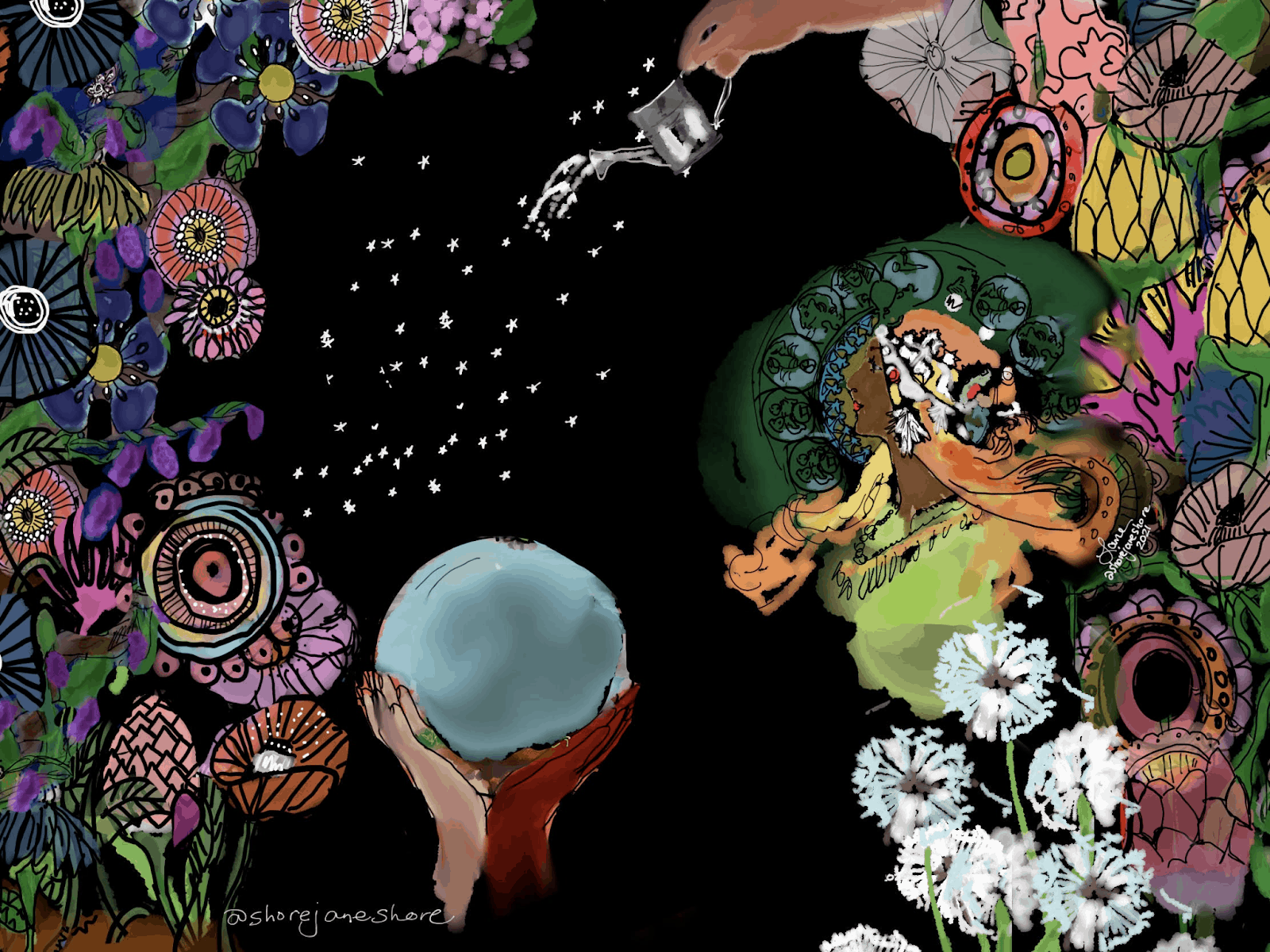
In other words, asking kids to live a school experience meant to prepare them for the future that asks them to sacrifice the now often just means kids are less likely to ever flourish.
What should drive the design of K-12 schooling is a deep understanding of how individuals flourish, grow, and learn, a vision of the kind of community and society we want to create together, and an explicit set of values that underlie that community. These you can continually create and live every day — we can live them today.
In Sum
To conclude by reiterating: the absolute best way we can approach preparing our children for a VUCA world is (and has always actually been) not by focusing on the future but rather by focusing on the now. Focus on the kids in front of us today — their strengths, unique perspectives, and interests — to best ensure adults prepared for tomorrow.
Create environments in which students are valued, loved, and seen — and design experiences through which they get to practice the capacities, character, and beliefs that allow them to make informed choices about their lives and experiences through which they get to apply their strengths toward creatively solving problems they care about today.
This kind of environment and practice will prepare them to bring all of their ability, curiosity, creativity, and habits of mind when they face future VUCA worlds we cannot even imagine, much less plan for.
For more, see:
- Equity in Education: We Don’t Need to Level the Playing Field, We Need to Change the Game
- The Seeds of Opportunity in Crisis
- Designing Schools for Human Flourishing and Thriving Democracy
Stay in-the-know with innovations in learning by signing up for the weekly Smart Update.



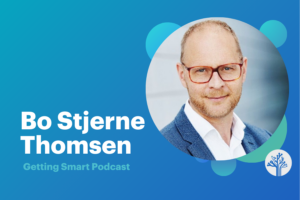


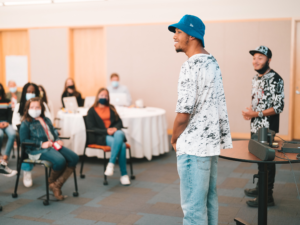

Kim Flintoff
The #TIDES program is built upon this premise, as well as enabling student voice so that there are opportunities for learners to begin to contribute to the discussions and actions that will shape the future they will have to deal with. Young people as:
- contributing to new Visions of the future that appear so volatile,
- developing Understanding of the systems and dynamics that seem so uncertain,
- participating in the Communication that unpacks the complexity, and
- applying the requisite Agility to pivot when they encounter ambiguity.
#stem4innovation #learningfuturesnetwork
Anežka Novák van Lynden
Fantastic article! It's like you have expressed my beliefs about education in a succinct and digestible way, which hopefully other people who do not share those views, will also find ''acceptable'' and worth listening to. I hope these ideas and programs will spread so that we can continue to live in thriving democracies and be part of creating new democracies in which social and economic justice are paramount rather than the greed of individuals being the driving force for so-called economic growth and an outdated education system (where I live) with its autocratic and authoritarian management style of school directors training students to be passive receptors of knowledge in order to memorize it and pass tests to get acceptable marks on a scale of 1 - 5. Having said that, it depends a lot on the character, courage and training of the school director; there are beacons of hope.
Are you running training programs virtually? And working internationally? As a teacher and person with a lot of experience in the arts, I would love to be part of a project like this in the Czech Republic. As we have seen in neighboring Poland and Hungary, democracy is fragile and the concept of civil engagement not widespread.
Thank you!
Anezka,
Prague